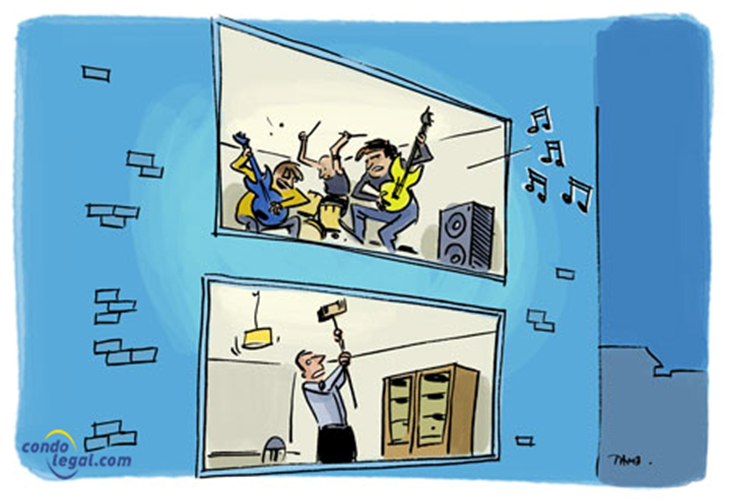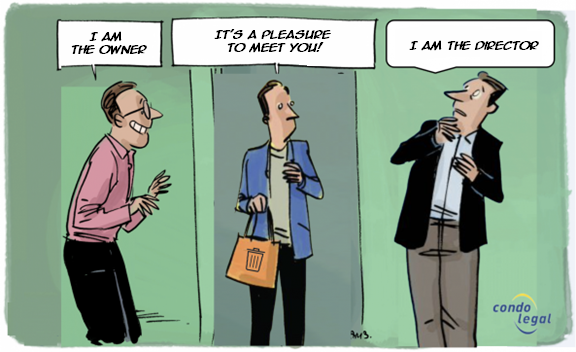Lessee’s insurance

With the increasing presence of tenants in divided co-ownership buildings, it is essential for all stakeholders to fully understand the issues related to insurance coverage. Unlike in other countries, Quebec law does not require tenants to purchase “home insurance”, which would cover their belongings and civil liability in the event of a loss. This lack of obligation can pose a problem if a tenant causes damage and is not insured. In such a situation, the declaration of co-ownership can hold the co-owner landlord responsible for the damages caused by their tenant.
Civil liability
Your tenant is responsible for any damages caused during the rental period. The tenant's liability insurance will protect them against bodily injury or material damage they might unintentionally inflict on others, as well as damage caused by their guests. It also covers damages their belongings might cause to third parties. For example, it will cover a water damage incident caused by an overflowing washing machine in your apartment and the neighbor's apartment.
It is important to explain to your tenant the importance of having liability insurance. In the event of a disaster, if the tenant is responsible, they may be required to reimburse the syndicate for amounts not covered by their insurer, particularly due to the deductible and for the costs of the necessary repairs. This insurance thus protects them against claims from you, other co-owners, and the syndicate.
Movable property
The co-owner- lessor’s insurance does not cover the lessee’s personal property. It is therefore in the best interest of the latter to purchase home insurance. Thus, all his movable property in his dwelling will be insured, in full or in part.
Additional living expenses
In case of fire or serious water damage, your lessee may have to be relocated. In certain cases, repairs in his apartment can extend over many weeks. For this reason, his home insurance policy should include a guarantee under this chapter, otherwise he will not be able to claim an indemnity for his additional relocation and food expenses. This is why, his home insurance policy must include coverage under this chapter, as otherwise he will not be indemnified for such extra expenses.
Declaration of co-ownership
Declarations of co-ownership generally provide that the co-owner lessor is jointly liable for damages caused by his tenant or subtenant. However, many co-owners' liability insurers do not recognize the validity of such a clause, citing the requirements of article 1074.2 of the Civil Code of Québec. They therefore refuse to compensate the syndicate of co-owners for the sums not compensated by its insurer, in particular because of the deductible, on the pretext that their insured (co-owner-lessor) has committed no fault. To avoid such a legal imbroglio, it is necessary that the declaration of co-ownership requires tenants to take out liability insurance.
 WHAT YOU SHOULD KNOW ! According to a survey conducted by the Insurance Bureau of Canada, 37% of Quebec renters still do not have home insurance. As a co-owner lessor, it is in your own best interest to require, when you sign the lease or at each renewal that your lessee maintains home insurance for the term of the lease. The lease should thus provide a clause requiring your lessee to subscribe this type of insurance, and to supply you with proof thereof.
WHAT YOU SHOULD KNOW ! According to a survey conducted by the Insurance Bureau of Canada, 37% of Quebec renters still do not have home insurance. As a co-owner lessor, it is in your own best interest to require, when you sign the lease or at each renewal that your lessee maintains home insurance for the term of the lease. The lease should thus provide a clause requiring your lessee to subscribe this type of insurance, and to supply you with proof thereof.
 WHAT TO KEEP IN MIND : There should be as many insurance policies as insurable persons in a divided co-ownership; they are the lessee, the co-owner- lessor, the owner-occupant and the syndicate. Furthermore, it is of primary importance that all these insurance products be complementary, to avoid that certain risks not be covered by the insurer of the party at fault. In other words, the lessee and of the co-owner’s insurance must be complementary with the basic insurance of the syndicate.
WHAT TO KEEP IN MIND : There should be as many insurance policies as insurable persons in a divided co-ownership; they are the lessee, the co-owner- lessor, the owner-occupant and the syndicate. Furthermore, it is of primary importance that all these insurance products be complementary, to avoid that certain risks not be covered by the insurer of the party at fault. In other words, the lessee and of the co-owner’s insurance must be complementary with the basic insurance of the syndicate.
 WARNING ! The co-owner's insurance covers neither the tenant's furniture nor his civil liability. Furthermore, many declarations of co-ownership provide that the co-owner-lessor is (by the sole effect of the law) liable for any damageable act or omission which can be attributed to his lessee. In addition, the syndicate may invoke the liability of the lessee for damages caused by the latter.
WARNING ! The co-owner's insurance covers neither the tenant's furniture nor his civil liability. Furthermore, many declarations of co-ownership provide that the co-owner-lessor is (by the sole effect of the law) liable for any damageable act or omission which can be attributed to his lessee. In addition, the syndicate may invoke the liability of the lessee for damages caused by the latter.
Back to the factsheets





